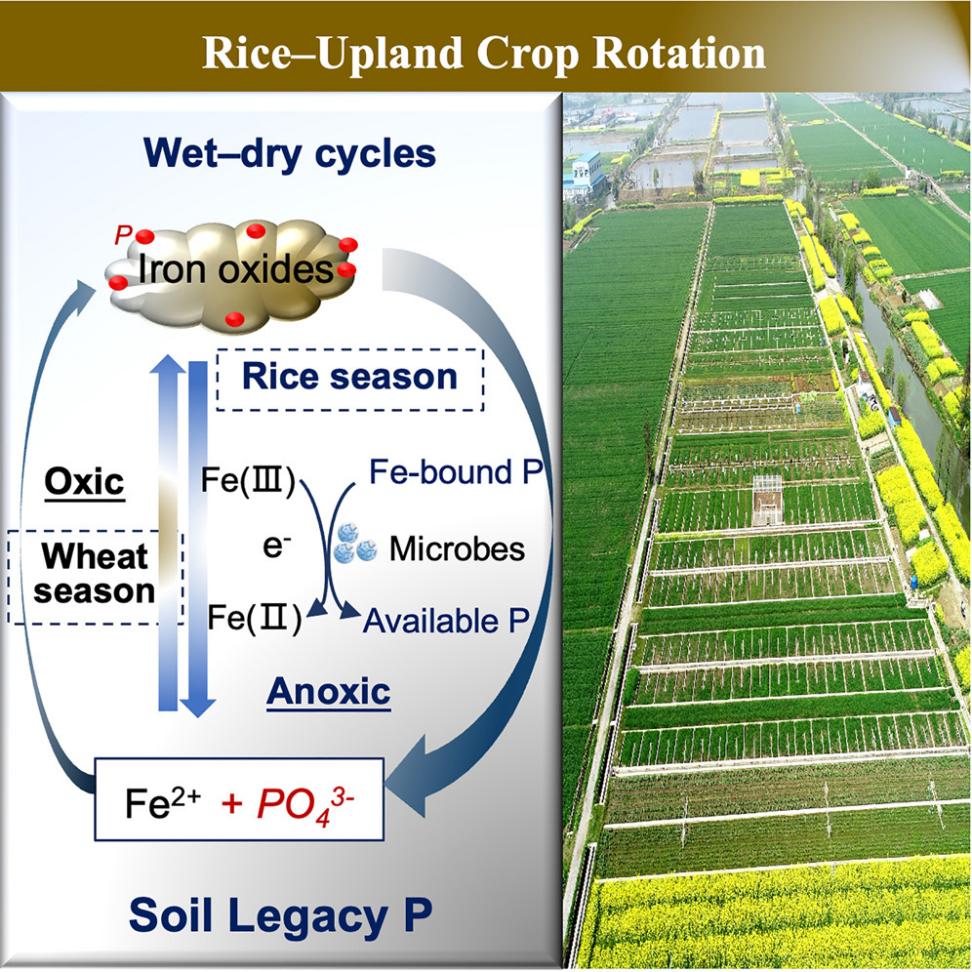
Modern agriculture relies heavily on phosphorus (P) fertilizers to sustain high yields, but this dependency has led to widespread soil P accumulation and increased risks of water pollution. Reducing fertilizer inputs without compromising productivity remains a major challenge. Here, Prof. Wang Shenqiang, associate Prof. Wang Yu and their research team use a 13-year field experiment in China’s Yangtze River Basin to investigate whether legacy P, the residual P from past over-fertilization, can sustain crop yields in rice-wheat rotations. By strategically omitting P fertilizer during the flooded rice season, they found that yields remained stable, while P runoff decreased by 23%, driven by the microbial and redox-mediated release of Fe-bound P. When scaled to the basin, this practice could save 71 Gg of P fertilizer and $26.6 million annually while reducing P runoff by 2.3 Mg. Their findings demonstrate the feasibility of mobilizing soil legacy P to align food production with environmental goals in intensive cropping systems globally.
This study published in One Earth in September.

Attachment Download: